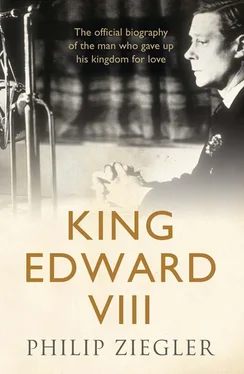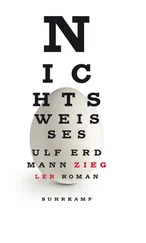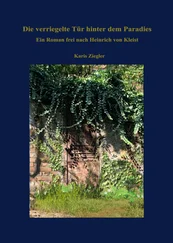The Prince was not alone in wondering whether his visit was necessary or desirable. India was in disarray. The Montagu-Chelmsford Report, which had reiterated that the aim of the British government was to establish India as an independent democracy within the Empire, had signally failed to convince the Indian National Congress Party that British intentions were honourable. The unrest that followed led to the introduction of trial without jury for those accused of political crimes, and, in April 1919, to the massacre at Amritsar. Peaceful non-cooperation was Gandhi’s formula for India’s dealings with the British, but non-violence frequently led to violence, and Congress’s decision to boycott the Prince’s visit carried with it the threat of disorder and much personal risk for the visitor. Almost all the provincial governors, led by the experienced Lord Willingdon, concluded that the tour was unwise, 8while from a different point of view the private secretary to the Maharaja of Dewas, E. M. Forster, felt that to the educated Indian ‘this ill-omened visit does seem an impertinence. You can’t solve real, complicated and ancient troubles by sending out a good-tempered boy; besides, this naive slap-on-the-back method, though the very thing for our colonies, scarcely goes down in the East.’ 9Indeed, almost the only champion of the tour was Lord Reading, who was unshakeable in his conviction that the visit would pass off well, serve British interests in India and, above all, consolidate Britain’s relationship with the Indian princes. Since Reading was the Viceroy and Montagu, the Secretary of State for India, was his faithful ally, planning for the tour continued.
Montagu’s original idea, indeed, had been that the functions of executive ruler and Viceroy should be divided and the Prince himself serve for a few months as Viceroy. 10Lloyd George vetoed the idea, no doubt to the Prince’s considerable relief. 11But the project that survived seemed little better. ‘How I’m loathing and hating the thought of India …’ he told his mother. ‘But as I have to go, I must try and make the most of it.’ 12Till the last moment he hoped that something would turn up to prevent the tour. ‘I’m afraid the trouble in India seems to be subsiding,’ he wrote to Freda, ‘and that there isn’t a chance of it stopping my going, damn it.’ 13Against the wishes of most members of his staff, he insisted that Louis Mountbatten should once more be in the party – ‘to look after my private and personal comfort and do small and unimportant jobs for me,’ as he explained to Godfrey Thomas. 14Thomas was not pleased, nor was Lord Cromer, who was to perform in India the part played by Grigg in Australia. ‘We all deplore his inclusion in the Staff,’ Cromer wrote to another colleague, Colonel Worgan. The Prince had ruled that Mountbatten was always to have a room, however small, near his own. ‘You need have no scruples about a very literal interpretation of the Prince’s own words “however small”,’ instructed Cromer grimly. 15The real significance of the appointment lay in the light it threw on the Prince’s alienation from his regular staff. He told Grigg that he wanted Mountbatten to come along since ‘he now has no friends on his own staff except perhaps Legh’. ‘I gather that Halsey is no longer a friend!!’ commented Stamfordham. 16In fact the Prince was still close to Godfrey Thomas as well as Legh, and fond of a new recruit, Bruce Ogilvy, but in his black mood as he prepared to leave he could see nothing but enemies around him.
The Prince was convinced that the style which had worked so triumphantly in Canada and Australia would serve in India as well. If he was only allowed to be himself, then he could get through to the people and win their hearts. He was appalled by the dense thickets of ceremony with which the authorities seemed determined to hedge him round. Even before he landed, he told Mrs Dudley Ward, he was convinced ‘that all the official rot and pompousness is overdone and is quite unnecessary’. He was determined to break it down, ‘even though I’ll risk getting into trouble with the officials and powers that be’. 17And it was not just the stuffy British officials who were at fault; the semi-independent Indian princes were equally out of touch with the real people, ‘their ceremonies are so irritating and ridiculous’. 18
The King was quite as certain that the sort of informality which had been so successful in the white Dominions would prove disastrous in India. 19Stamfordham rubbed in the argument – ‘I have impressed upon him the absolute necessity for a maintenance of strict dignity on all official occasions’ 20– and Cromer battled valiantly to hold the line, complaining ruefully to Wigram that ‘it is not always easy to get HRH to adjust his mind as to what is suitable to certain occasions’. 21The old brigade was not wholly wrong. The Prince’s style did give offence to many British and a few Indians, some of them of real importance. But he won many more friends by his behaviour. Professor Rushbrook Williams, Director of Public Information at the time and official historian of the visit, told Frances Donaldson many years later that he ‘never knew an Indian who had met HRH who was not charmed by him – he was human, informal and genuinely interested in them. Again and again I heard the remark: “If only all you Europeans were like him!” … Above all, he wanted to meet and get to know Indians.’ 22
Professor Williams gives the Prince credit for more enthusiasm towards the Indians than in fact existed. As usual it was the serving soldiers and ex-service men who most appealed to him. 23He was quite as colour conscious as any of the British rulers of India; when Mountbatten reported a conversation with Mrs Besant in which that formidable lady revealed that the the Prince was a reincarnation of Akbar, his cousin was disgruntled at the idea of having been a ‘black man’ in a previous life. 24He had no doubt that the Indians and Burmese were wholly incompetent to run their own affairs and would be lost without the benevolent supervision of their colonial masters. 25
And yet he did do his best, often in spite of the authorities, to get through to them. ‘I want to know you and I want you to know me,’ was a personal note that he grafted on to the formal message from the King Emperor which he delivered in Bombay. At Poona he horrified officials by walking around the stands after laying the foundation stone so that people could see him. They rose to their feet and cheered themselves hoarse. 26In Lucknow he went to see four thousand poor being fed. ‘I insisted on walking about amongst them despite the ruses of the officials and police to prevent me stopping and getting out of the car. I feel that I’m one up on them all for once!’ 27He learned enough Hindi to exchange a few words with the many thousands of military pensioners whom he inspected: ‘It’s worth it every time, as these Indians do appreciate it and it makes it far more interesting for me too. And it’s a heart-breaking job going round these poor devils, many of them maimed and limbless, whose govt pensions are hopelessly inadequate and for whom I can do so little.’ 28And when the Indians were there and he was allowed to move among them, he could work the same magic as in Canada or Australia. At a People’s Fair near Delhi he was mobbed by five or six thousand natives who surged round him, reported the military commander, General Rawlinson, ‘cheering him to the echo, salaaming and almost worshipping him. He was perfectly delighted …’ 29
The Prince believed that the police were overdoing his protection and cutting him off from the people who were ready to acclaim him. ‘Surely they can trust me not to make a BF of myself and do anything idiotic?’ he enquired indignantly of Freda Dudley Ward. The police always retorted that they were doing no more than they did for the Viceroy – ‘All I say is “God help the Viceroy”!!’ Everyone was working loyally and diligently but, ‘alas they are working in the wrong way and completely preventing this tour being of the slightest use as far as the natives are concerned, which is after all the real reason for my coming’. 30
Читать дальше












